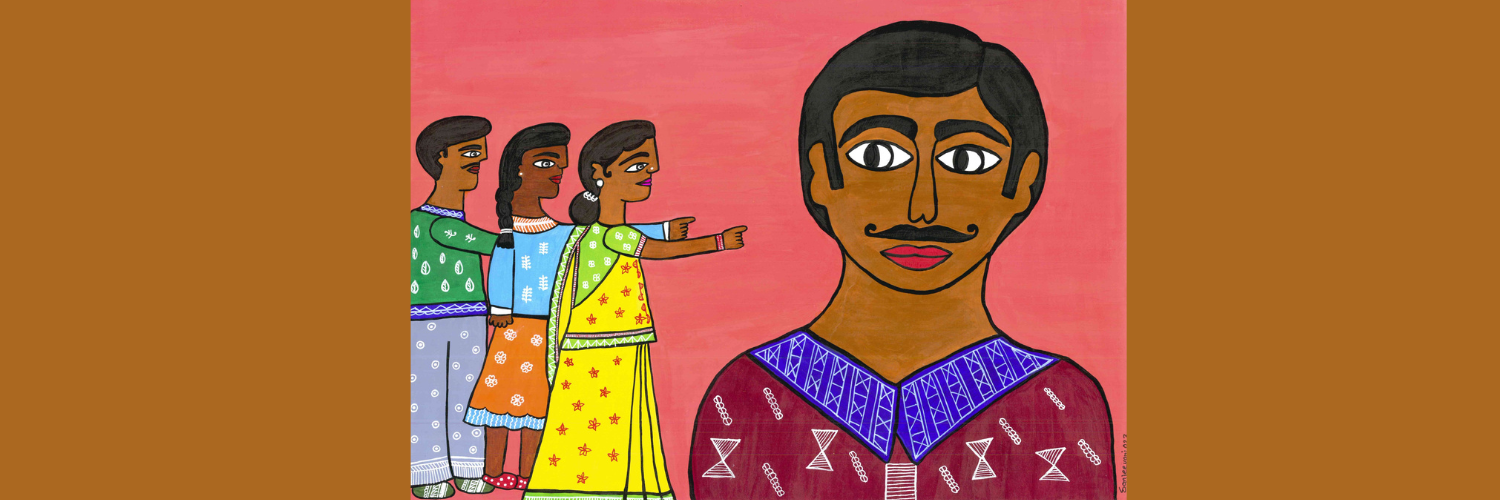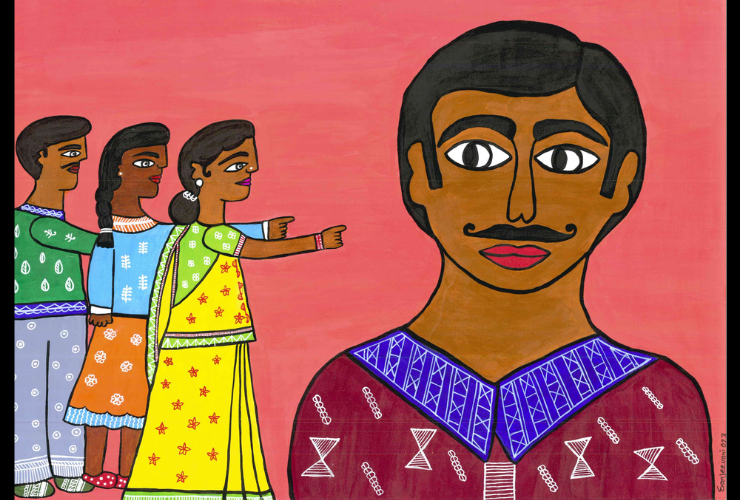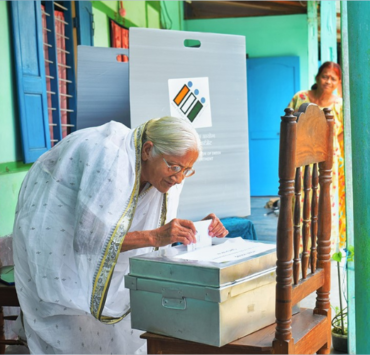
By Rituparna Chatterjee

In 2018, at the peak of the #MeToo movement in India, Fairoz Khan, an official from the youth wing of the Indian National Congress party (INC), stepped down after a complaint of sexual harassment was filed against him. At the time, the Congress instituted a committee to look into the allegations against Khan, the national president of the National Students’ Union of India (NSUI).
In October 2018, senior journalist turned politician MJ Akbar, then Minister of State for External Affairs in the BJP-led union government, stepped down from the official post after a number of women who had worked with him in various media houses over the years accused him of sexual harassment. He denied all the allegations and subsequently sued journalist Priya Ramani, who had written about his behaviour, for defamation. He lost the case in the trial court in 2021 but has appealed the verdict.
Since then, similar allegations have swept political parties across the country – emboldened by a new wave of disclosure that the #MeToo movement enabled and sustained. But the space left in the ebb exposed a shocking lack of institutionalised redressal mechanisms within parties to safeguard women workers.
In Kerala, Congress lawmaker AP Abdullakutty was accused by a woman of sexual assault in Thiruvananthapuram in 2014. In 2020, former Bharatiya Janata Party (BJP) MLA Kuldeep Singh Sengar was sentenced to 10 years in prison for murdering the father of a teenage girl he had raped in Uttar Pradesh’s Unnao in 2017. BJP leader Chinmayanand was accused of rape by a young woman and her family in 2019. BJP MP Brij Bhushan Sharan Singh – former president of the Wrestling Federation of India – is currently facing a case based on sexual harassment allegations from women wrestlers that became public in 2023.
As recently as this year, West Bengal’s Sandeshkhali was embroiled in turmoil after Trinamool Congress (TMC) leader Sheikh Shahjahan was accused of assaulting and raping several women over years. In Maharashtra, Dhananjay Munde of the Nationalist Congress Party (NCP) is facing rape accusations.
In the latest such case, Prajwal Revanna, grandson of former Prime Minister of India, HD Deve Gowda, has been accused of rape. He is the sitting MP of the Janata Dal (Secular) – the BJP’s ally in Karnataka – and is again contesting elections this time from the state’s Hassan constituency. Police first registered a complaint against him based on the statement of a woman who had worked as a domestic helper in the family home. His father, HD Revanna (an MLA belonging to JDS), was also mentioned in the complaint. He has also been linked to video clips of sexual encounters that indicate the women involved were sexually assaulted, according to officials in the state. What is known at this time is that there are two separate First Information Reports (FIRs) alleging sexual harassment and assault by Prajwal Revanna, and another one related to cyber crime. In addition, there is an FIR against the father alleging abduction of one of the women complainants. There may well be more in the offing.
That women political workers have time and again faced harassment within political parties, and that several party workers and leaders have cases of sexual violence against them, points to a serious vacuum in the statutory obligations of registered political outfits and the absence or ineffectiveness of the institutional mechanisms required if they are to effectively address this problem.
According to a 2023 report by the Association of Democratic Reforms (ADR), of the 763 Lok Sabha and Rajya Sabha MPs, 306 had criminal cases (40%) and 194 (25%) had serious criminal cases pending against them when they filed their affidavits. Serious criminal cases include non-bailable offences such as murder, kidnapping, prevention of corruption, rape and other crimes against women.
Political parties registered under the Societies Registration Act are required to have Internal Complaints Committees (ICs) to address complaints of sexual harassment. However, many parties still do not have functioning ICs.
The Congress and the BJP had both said in 2018 that they would take up such matters through their disciplinary committees or probe panels. The weak response of custodian institutions charged with upholding women’s rights, and the evident absence of legal or social consequences for those who violate them, have aggravated the impunity with which political leaders accused of serious crimes operate in this country.
Take the case of Jaswantsinh Bhabhor, the BJP MP from Gujarat’s Dahod, and his brother Shaileshbhai Bhabhor, the BJP MLA from Limkheda, who shared a stage with Shailesh Bhatt – one of the 11 men convicted for raping Bilkis Bano during the 2002 Gujarat riots. Prajwal Revanna was allowed to leave the country in April 2024 despite an FIR based on the complaint of a 47-year-old domestic worker alleging that he and his father sexually violated her and her daughter.
Public protests against such crimes tend to be sporadic and soon crushed through police action. The apparent absence of policies within most political parties to address such crimes, together with the lack of a zero tolerance approach for such behaviour, have over the decades enabled a culture of power-enforced toxic masculinity in political life. It is significant that Prajwal Revanna was allowed to contest the election to the Hassan Lok Sabha seat even after allegations of sexual abuse were communicated to Union Home Minister Amit Shah through a letter dated 8 December 2023 from a BJP leader in the state, Devaraje Gowda.
It is not the severity of justice but the surety of justice that deters crimes. The Revanna case is just the tip of the iceberg. The manner in which it is handled will set in motion the process of justice in many similar cases, including those that have yet to come to public notice.
An award-winning editor with over 20 years of experience, Rituparna Chatterjee currently works as the Deputy Asia Editor at The Independent (UK). She was a founding editor of HuffPost in India and former India Representative of Reporters Without Borders. One of the first editors to work in the digital space in India, she has also been reporting from the Indian subcontinent on gender, civil rights, politics and culture.




